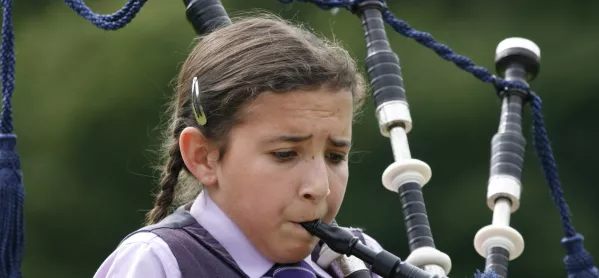The introduction of charges for music lessons in Scotland has led to huge falls in the number of pupils learning to play instruments, campaigners have warned.
They say, for example, that the introduction of a £354 annual charge for lessons in West Lothian and £280 in East Lothian have led significant declines in those areas.
In May, first minister Nicola Sturgeon said that local budget cuts must not stop poor pupils from learning musical instruments.
Some councils do not charge for instrumental music lessons, but in other areas the EIS union’s Change the Tune Campaign has raised concerns about rising fees and take-up declining in deprived areas.
In West Lothian, about 1,800 pupils took lessons in 2017-18 but only 360 are understood to have signed up so far this year. In East Lothian, the figure is believed to have dropped from 1,500 to 350. The councils said the numbers are expected to increase over the coming weeks.
Music: ‘Only those who pay can play’
Kirk Richardson, convener of the EIS Instrumental Teachers’ Network, said: “It’s not as if these councils are bringing in small charges. Parents will vote with their feet, with horrendous consequences for music in Scotland. We are going to increasingly see a system of only those who pay can play, unless the government steps in.”
In the Scottish Parliament today, the Greens’ leader, Patrick Harvie, said a “huge” number of children were missing out on instrumental music.
Local authorities’ body Cosla is due to discuss instrumental music lessons at a meeting tomorrow.
Tes Scotland has previously highlighted the impact of budget cuts on instrumental music instructors and shown that not enough secondary music teachers are being recruited.
In June, EIS general secretary Larry Flanagan said that cuts and increased charges had “contributed to a significant erosion of music in schools and place it at risk of extinction”.




